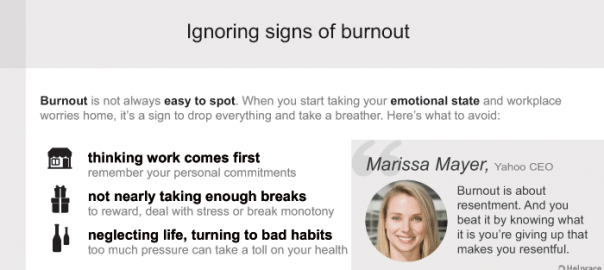— February 13, 2018
We all make mistakes, that’s part of life.
But even a small mistake when starting a business can have costly repercussions.
Entrepreneurs should be aware of all the possible pitfalls, learn from past experiences and keep up to date with the latest trends. They should also surround themselves with ambitious, experienced mentors and have a solid support network of family and friends.
While you’ll never fully shield yourself from making mistakes, at least you’ll be more resilient in the face of danger and better equipped to reach your goals.
Here are some things to avoid when building your startup:
1. Settling on a wrong form of investment
An investor is not just a bank account – it’s also a mentor and someone who shares your vision. By focusing on making money early on you can gain more leverage and bargaining power with investors later on.
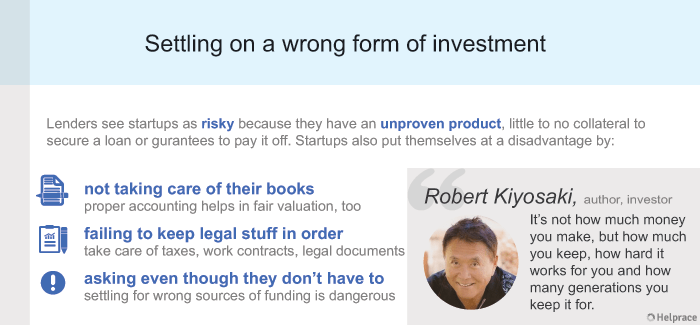
Trying to get money from others will always require more effort and sacrifices than what’s apparent at first. Make sure you do your homework and understand the conditions carefully before settling on any form of investment.
2. Failing to establish a competitive advantage
Establishing a unique value proposition and marketing it properly everything. Focusing on one core idea and executing it well (as opposed to trying to execute all ideas at once) is usually the best course of action.
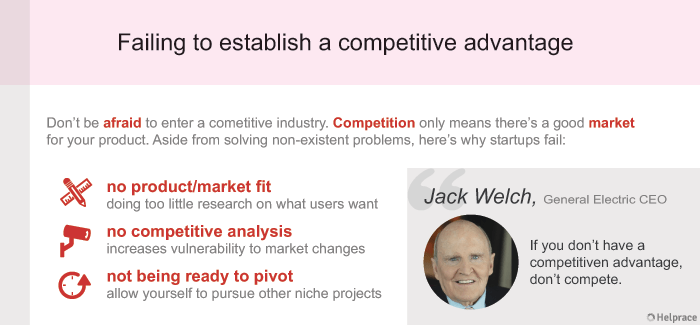
Never assume customers will start pouring in even if your product is considerably better than the competition. More often than not, it takes triple or quadruple the time to gain traction startup founders originally aim for.
3. Ignoring the onboarding process
While good design keeps visitors engaged, good onboarding keeps them around. We can’t keep up with the constant bombardment of information. We need predictable, bite-sized instructions accompanied with intuitive imagery.
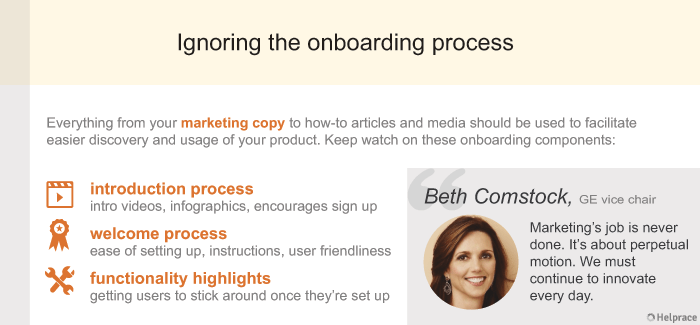
The work with onboarding – like design – is never done. It’s ergonomics for the brain: something that can always be worked on and improved upon. And time spent on getting paying customers never wasted but well-spent.
4. Inability to disassociate yourself when needed
Life demands a lot from us and the pressures of entrepreneurial life certainly don’t help. It’s important not to get your emotions in the way – whether it’s in the way of asking finances, believing you can survive on “x” or putting blind faith in one thing or another.
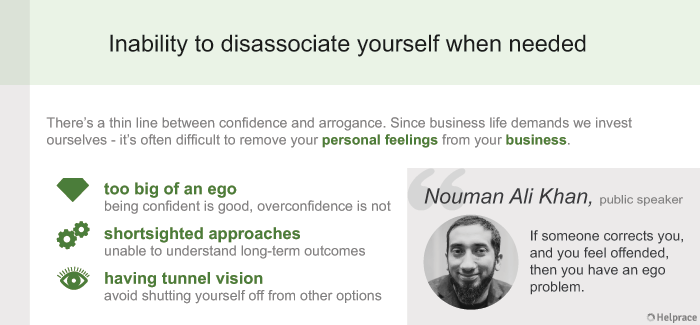
The good news, disassociating yourself is not difficult. When things get too heavy, take it as a sign to recharge. Develop routines – daily, healthy habits. Perform exercises, eat a balanced breakfast, read or mediate.
5. Failing to leverage existing strengths
Everyone has strengths. A weaknesses can also be a competitive advantage, thus a source of strength. However unearthing your strengths is not always an easy task: it requires creativity and vision.
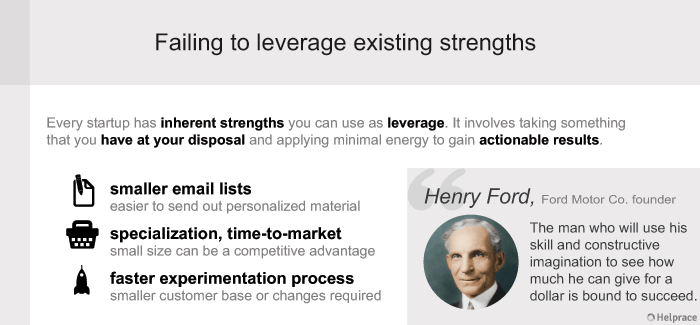
A company with a smaller customer base is able to talk to customers one-on-one. After getting that crucial information, it’s easy to pivot the right way and focus on things that will increase conversions. Another advantage of small companies is that they can dominate niche markets that large companies simply can’t pour resources in without hurting other areas of their business.
6. Rejecting experiment-based approaches
Businesses fail due to poor execution, timing or market fit. Most of these can be traced back to flaws in getting the equation just right – sometimes only with enough trial and error.
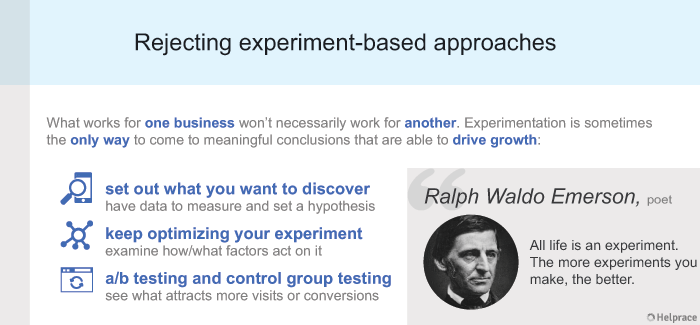
Any improvement must start with a goal, no matter how broad. If you’re trying to increase sales, you’ll have to go down all avenues. It could involve sprucing up your email list or improving your landing pages. Perform a hypothesis, analysis and experiment before moving ahead.
7. Not learning from past mistakes
Starting and growing a business is a learned skill, so the more you do it, the better you get at it. Common wisdom would suggest that if you started five businesses before, you won’t make the same mistakes when starting a sixth.
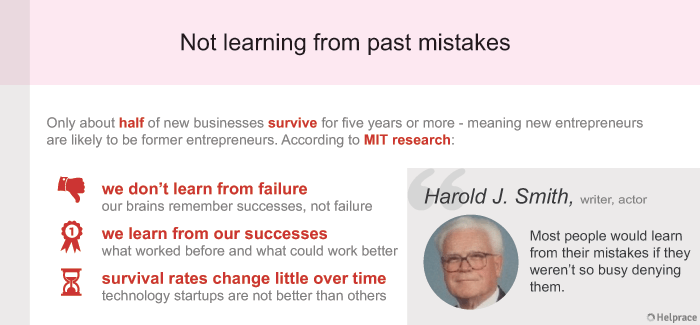
Sometimes you need to make a number of mistakes or missteps before succeeding at something. Once you hang on to a sinking ship on the way down, you’ll learn to identify when to abandon it next time around.
8. Focusing on wrong marketing channels
It’s nearly impossible to create a business selling to “the individual and the enterprise”. There are very few mature companies that serve all markets – something that likely wasn’t the case when they were small or struggling to get by.
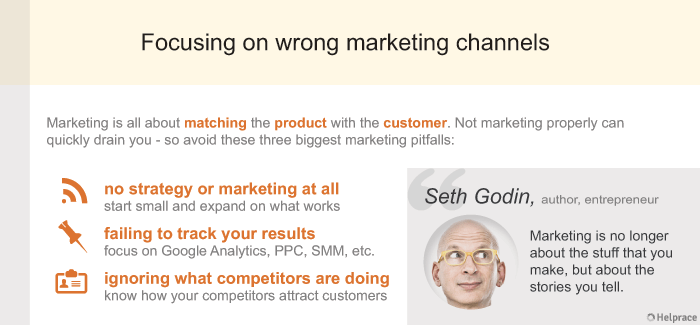
When a marketing channel doesn’t work, don’t hold on to it, especially when that time could be used on doing something else. Get into the habit of only doing things that bring in tangible benefit.
9. Not managing time effectively
When running a business, it’s too easy to get bogged down and try to get everything 100% right. Whether you’re thinking about perfecting your product, SEO, or tweaking your site design, it should all take second stage to the customer. Spend the majority of your time on what brings in money.
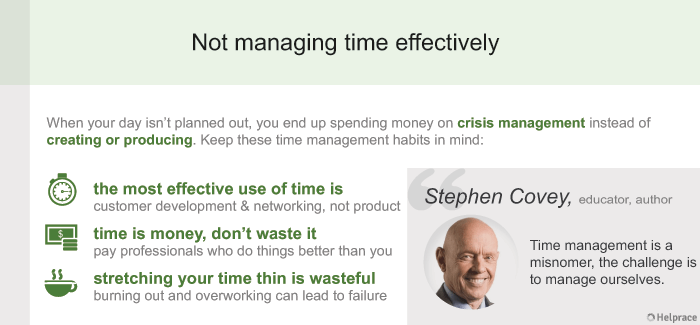
As you grow, it becomes more important to optimize everything. In order not to get carried away, prioritize all of the little things and ideas that come up. This way, you’ll have real, tangible reasons to implement or dismiss these ideas.
10. Ignoring signs of burnout
Burnout is difficult to anticipate and even more difficult to bounce back from. It’s something that creeps up on you and doesn’t seem apparent until you’re exhausted. What gives?
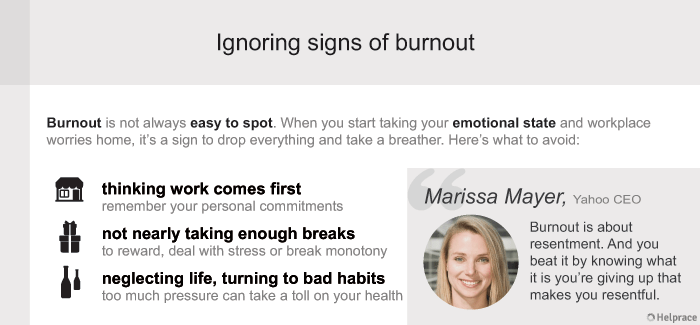
Remember to work smart, not hard. It’s okay to demand a lot from yourself, but don’t skimp out on taking regular breaks or going home at a given time. When things get too overwhelming, it’s a sign to drop everything, go for a walk, go for lunch, or even take a small vacation.
This is a version of the post that appeared on the Helprace Blog.
Business & Finance Articles on Business 2 Community
(32)
